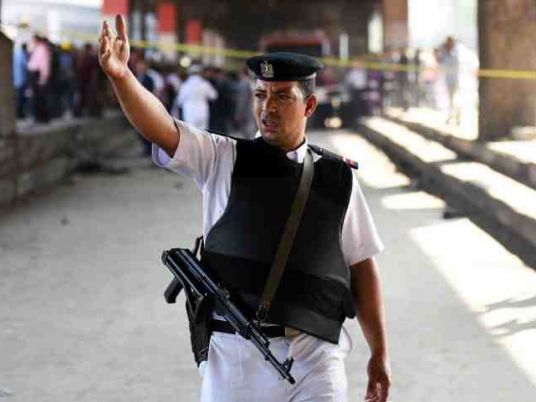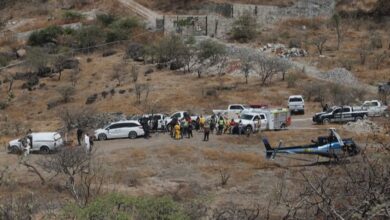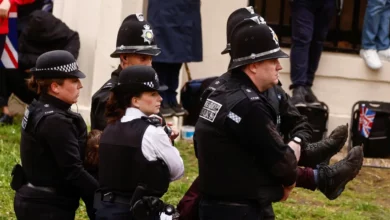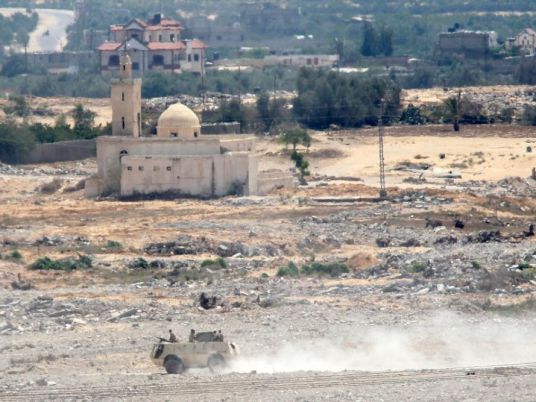“Revolutionaries need to digest the lessons learned and the mistakes that have occurred in order to achieve the goals of the January 25 revolution,” said Laila Marzouk, Khaled Saeed's mother, while visiting her son's grave on the second anniversary of his death.
Khaled Saeed’s family in Alexandria and activists marked the second anniversary of his death on Wednesday. Many view Saeed's death one of the sparks that led to Egypt’s revolution last January.
Marzouk called for the forces that participated in the initial uprising to come together again.
“The most significant lesson Egyptians have learned from the revolution is the lack of confidence in a lot of people and institutions,” she said.
Marzouk added that she will boycott the second round of the presidential election because she refuses to choose between Ahmed Shafiq, Mubarak’s last prime minister, and the Muslim Brotherhood’s Mohamed Morsy. She added that she is in favor of forming a “civilian presidential council as a revolutionary solution for the current crisis in Egypt.”
Morsy, meanwhile, confirmed his commitment to the revolutionary cause and commemorated Saeed's death on his Facebook page, writing, “Martyr Khaled Saeed: Rest in peace, we bear your blood on our shoulders.”
The family and activists visited Saeed’s grave in Manara Cemetary. Saeed's two siblings Zahra and Ahmed read verses from the Quran and put a bouquet of flowers on their brother's grave.
Marzouk said that what she cares about most is that the killers of her son are punished.
The Alexandria Criminal Court has sentenced two police officers to seven years in prison in connection with Saeed's death, while the prosecution challenged the judgment, demanding a retrial.
Activists also organized rallies that began at Saeed’s former home in Sidi Gaber, Alexandria, and headed toward his burial place.
Former presidential candidate Hamdeen Sabbahi’s campaign announced that Sabbahi would participate in a rally that was set to begin at Saeed’s home at 4 p.m. Wednesday that will head to Martyrs’ Square in front of Misr Station in Alexandria.
The Lazem grassroots campaign said it would support the demands for change called for during a rally in Saeed’s memory. The campaign said the rally, held in memory of the revolution’s martyrs, would form human chains to commemorate Saeed and familiarize residents with the case. The rally was set to begin outside Al-Qaed Ibrahim Mosque.
The “We are all Khaled Saeed” Facebook page, which played an instrumental role in encouraging people to protest during the 18 days, commemorated Saeed’s death by publishing a series of his photographs.
Saeed was killed on 6 June 2010 after reportedly being beaten by two policemen who arrested him in an internet cafe in Sidi Gaber. Some reports said they arrested him after he uploaded videos to the internet showing police officers torturing prisoners.
The revolution broke out on 25 January — Police Day — following a call launched by several movements, the most prominent of which was the April 6 Youth Movement, in protest against police violations.
The protests continued until the ouster of former President Hosni Mubarak on 11 February.
Many demonstrators protested to condemn Interior Ministry practices against citizens in police stations, including torture, as well as failure to protect citizens during the Two Saints Church bombing in Alexandria on New Year’s Eve in 2010.
Edited translation from Al-Masry Al-Youm




